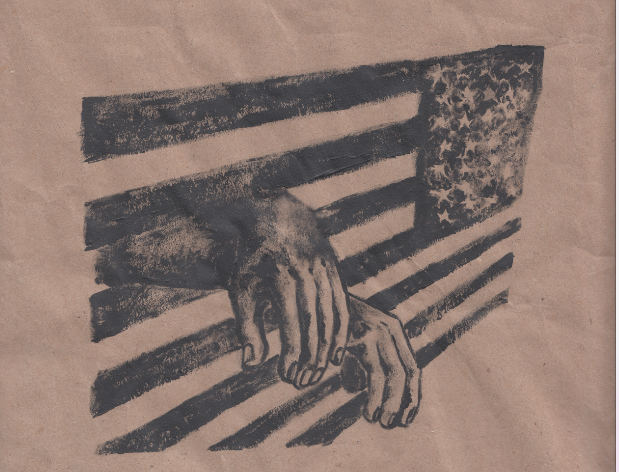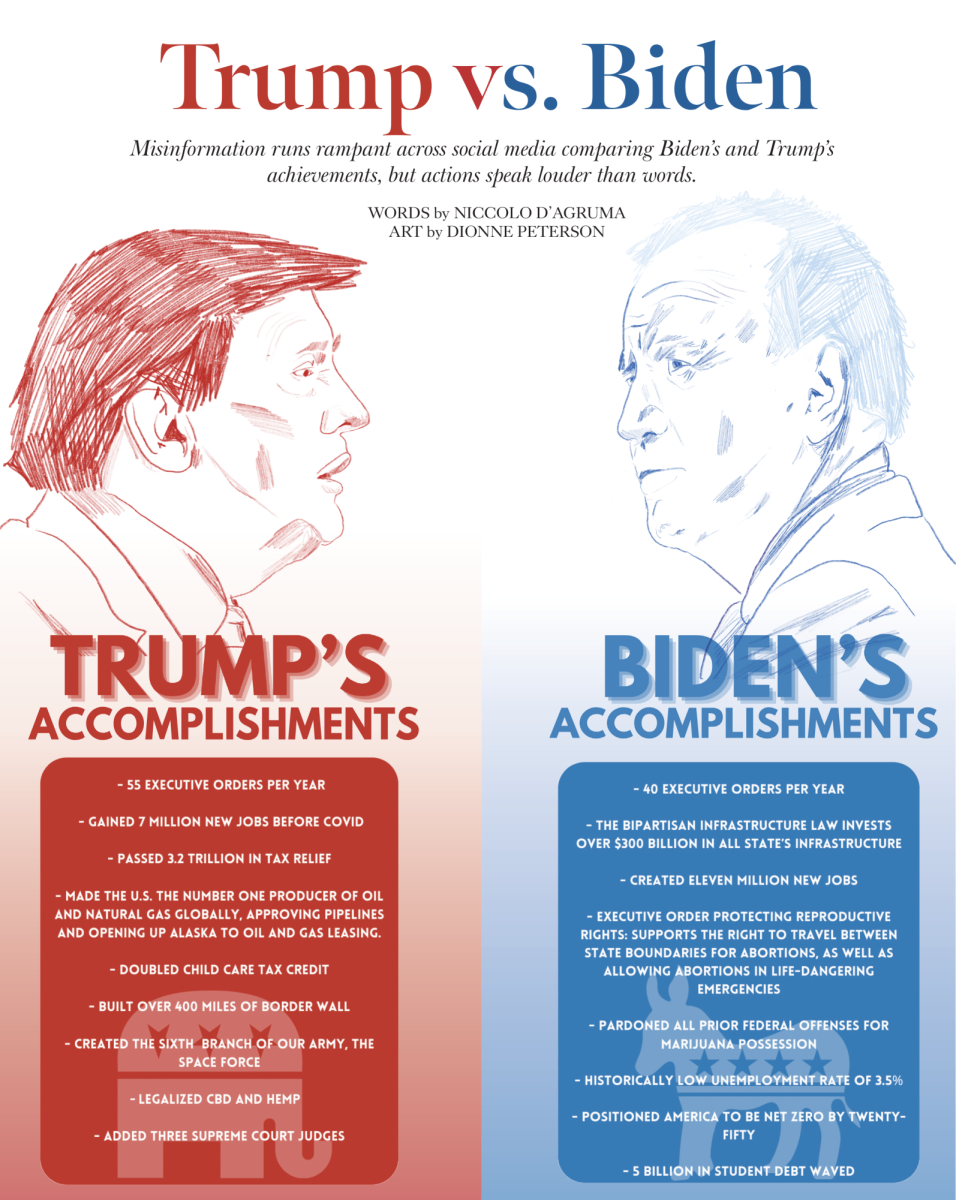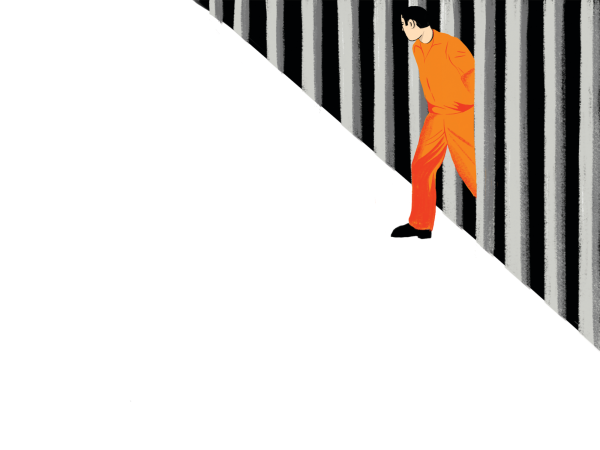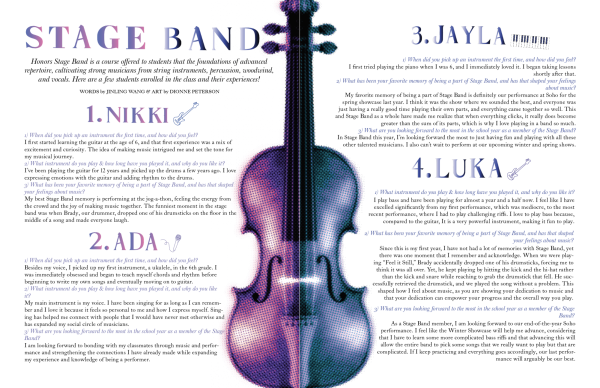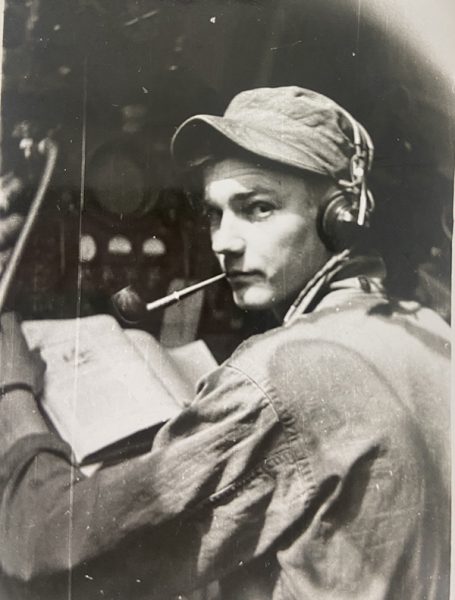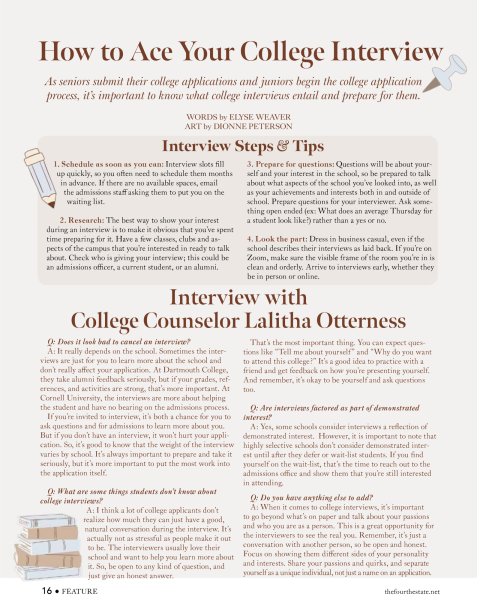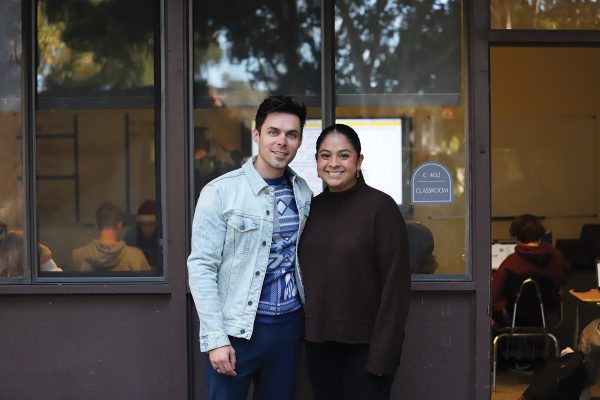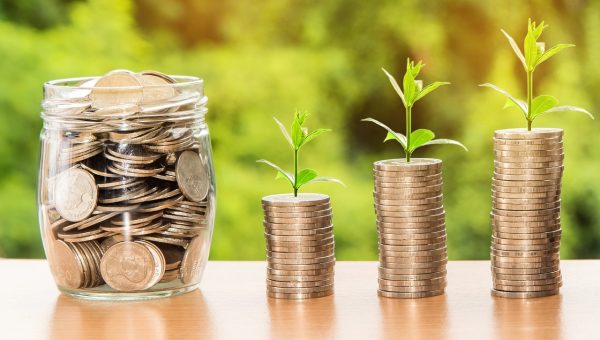Left Behind
In a country where our defense system is incredibly overloaded and overworked, the treatment of those within the prison system is cruel and inhumane. Urgent action is required to reverse this endemic problem.
May 18, 2017
Recently, I had the pleasure of viewing a documentary directed by a young lmmaker named Natalie Johns. e lm
centers around the problem of mass incar- ceration in the United States of America. It was immensely inspiring, moving and heartbreaking.
America is an incarcerated country. We solve our problems by handing out ex- tremely harsh sentences for minimal crimes and then locking people up. We are taking away peoples freedom and then forgetting about them. e treatment of those within the prison system is cruel and inhumane. Urgent action is required to reverse this endemic problem.
People stuck in the system want help. ey are constantly reaching in vain from behind bars, begging for some sort of assis- tance. And we, as a country, do very little to help them. is, because we don’t value each other as individuals.
We are all so self-obsessed and focused on our own problems that we don’t care about each other. We sel shly look at a young kid growing up in a rough neighborhood, and we see a criminal, a delinquent, a dangerous person.
is is wrong, what we should be seeing and recognizing is that this kid needs help. He is stuck in a system. A system that is hellbent on making our world a “safer” place by locking him up again and again and again.
Eventually the kid doesn’t know any better, he doesn’t know how to live any other way. He is a prisoner of the system and has no escape.
e truth is that most of the people who are trying to make a di erence are doing so because they have experienced this unjust and inhuman system themselves. ey are the lucky ones, who got a small piece of their freedom back.
What is sad is that most humans, if they haven’t experienced something themselves,
won’t ever really understand how serious of a problem it is. ey won’t understand what it feels like to be ignored by society and treat- ed as a disappointment, as a criminal.
Americans will keep going about their own lives without a care in the world until it a ects them. is is not OK, and if we, as a society, allow this to continue, inhuman policies will never be removed.
Also, the prison system is full of racism. Bill Quigley in the Hu ngton Post states, “In New York City, where people of color make up about half of the population, 80 percent of the NYPD arrests were of blacks and Latinos.”
Statistics like that are just a small example of the systematic racism within our police forces and our prison systems.
According to Quigley, “In the federal sys- tem, black o enders receive sentences that are 10 percent longer than white o enders for the same crimes.”
e fact is that the racism is ingrained within our prison system, but people are choosing to ignore it.
When people ignore widespread racism like this, and don’t say or do anything, noth- ing ever changes.
Another serious problem is what happens to inmates after they are released. Every week ten thousand people are released from prisons or jails in the U.S.. ey are thrown into the street, often with no money, no job and no idea of how to rejoin society.
Not only this, many are facing the next few years on probation. Consequently, if they do make a mistake and commit, however minor a crime, back into the system they go.
e reality is that when people get out of prison, they are generally even more likely to commit a crime than they were to before. We, as a country, spend millions of dollars keeping people imprisoned to try to stop crime and increase public safety, only to release them and have their risk increase the second they are let out of jail. The system also helps people who are guilty and rich over those who are innocent but poor. People who can’t afford their bail can spend days to weeks in jail even if they are only on a misdemeanor charge or if they are totally innocent and have been wrongly convicted.
According to the Prison Policy Initiative, “70 percent of the 646,000 people incarcerated in more than 3,000 local jails have not yet been convicted of a crime.”
If you have money, you can pay for great defense lawyers, but if you are poor, you are going to have to rely on a public defender.
A lot of public defenders might even be good lawyers, but the problem is that, for the most part, our defense system is incredibly overloaded and overworked.
They handle far more cases than your average lawyer and, because of this, are often unreliable. It is policies like these that cause the people who need the most help to be let down. ey are being treated as if they don’t exist. is cannot be allowed to continue.
Another huge issue involved with this failed system is the number of people with drug addictions or mental illnesses being sent to jail rather than to mental health facilities.
America has been waging an unsuccessful war on drugs for decades. In fact, there are over 1 million drug arrests each year, and over half of the country’s entire prison population has been incarcerated for drug related crimes.
In spite of this, the rates of drug abuse and addiction in our country are actually on the rise, and yet we don’t change our policies.
We still arrest and incarcerate as many drug users as our prisons can hold.
We need to change the way we view this issue and realize that, if we want to reduce drug abuse and addiction, the best thing to do is to provide treatment, not incarceration. Addiction is a disease, not a crime, and therefore it should be treated like one.
Having a mental illness, much like a drug addiction, is a disease. People need help, and yet our society does nothing for them.
According to an article by Olga Khazan in e Atlantic, “55 percent of male inmates in state prisons are mentally ill, and 73 percent of female inmates are.” is is a very large percentage of people in prison all struggling due to mental illnesses. Something needs to be done.
The documentary mentioned previously consists of many di erent interviews of people who have been elected by the system. One of the stories in particular is told by a woman who lost her husband. Her husband was a police offier who was shot while on duty.
For the longest time, the woman blamed the shooter and wanted him to die. She thought it would make her feel better and get rid of the pain that she felt. However, after some time she began to realize who this young teenager that had red the gun was.
Ever since he was a child he had grown up in a struggling neighborhood and had been in and out of the system. Constantly arrested and placed on probation. Constantly having his freedom stripped away from him. Constantly having his existence and identity ignored. Her husband’s dying was not solely this kids fault, it was the fault of the system.
Kids like this need help not incarceration from a young age.
If we can nd a way to do this we can prevent shootings from ever even happening in the rst place.
Our prison system is run on policies based on fear, racism and corruption. A lot of prisons are run for pro t. It is a pernicious business.



